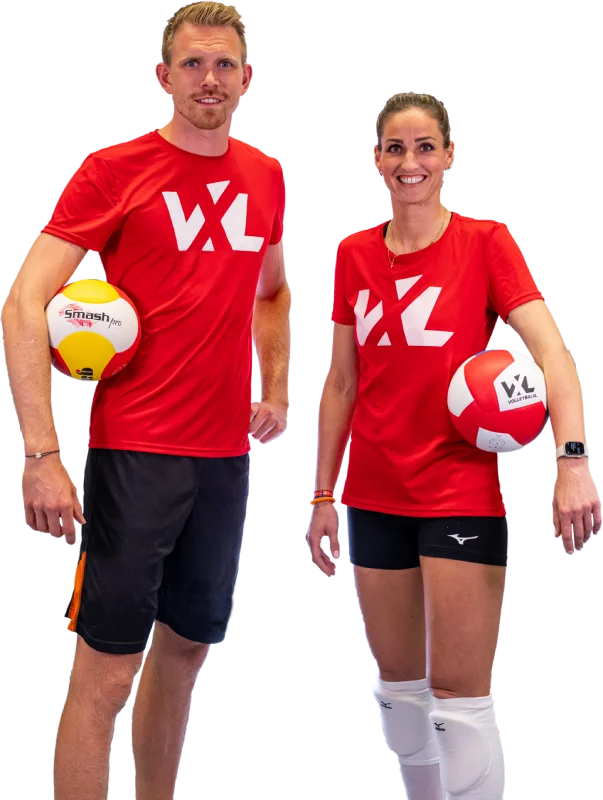Unfortunately, this drill is only visible to members.
Become a member of VolleyballXL and gain access to this drill.
Members have access to many extras:
- 600+ drills on video
- Complete trainings
- Create trainings with our exercises
- Training generator
- Academy videos

Get free accounts for your club! For a limited time only.
Really great! The generator is amazing, the exercises are well explained with the videos. The best website or app I have ever used. Feel free to publish as an app. The training can be perfectly ada...Read More
Really great! The generator is amazing, the exercises are well explained with the videos. The best website or app I have ever used. Feel free to publish as an app. The training can be perfectly adapted to your needs and circumstances. A real time saver and perfect.
Andre Skala
On VolleybalXL I find a lot of inspiration for the training I give every week. More and more trainers within the association are now enthusiastic about VolleybalXL. The website is user-friendly and...Read More
On VolleybalXL I find a lot of inspiration for the training I give every week. More and more trainers within the association are now enthusiastic about VolleybalXL. The website is user-friendly and by filtering you quickly get the exercises you are looking for from the wide range of exercises. You can then easily process this into a training course with all the tools within the website.
Sebastiaan Lamain
VolleyballXL is easy to use! Convenient for coaches who don't want to waste too much time creating training sessions.
Roald BartholomeesVolley Thor

A very good and structured site. Lots of training aids and additionally with videos for all forms of exercise, which helps to get ideas and for training.
Also the function of having an entire trai...Read More
A very good and structured site. Lots of training aids and additionally with videos for all forms of exercise, which helps to get ideas and for training.
Also the function of having an entire training session put together with a desired training goal, a big compliment to VolleybalXL.
Waldemar Kröker
For our club, we signed up for the premium subscription, after excellent and fast support via email. It's great to have someone who takes care of our questions and answers them quickly and cooperat...Read More
For our club, we signed up for the premium subscription, after excellent and fast support via email. It's great to have someone who takes care of our questions and answers them quickly and cooperatively. Our youth coaches can now fully get started!
Marleen SpieringsCito

Our club has taken out a subscription with VolleyballXL for all their youth and senior coaches. This allows our coaches to easily gather ideas for exercises and training sessions, with explanations...Read More
Our club has taken out a subscription with VolleyballXL for all their youth and senior coaches. This allows our coaches to easily gather ideas for exercises and training sessions, with explanations and possible extensions, thanks to a smart menu (level, number of players, training objective, which technique). All exercises are presented in a clear video!
Berry SchuursSwitch


